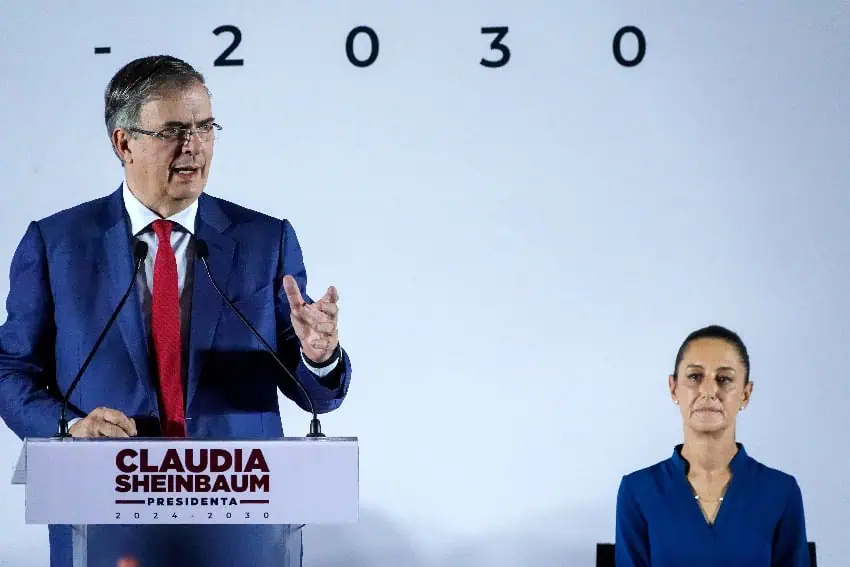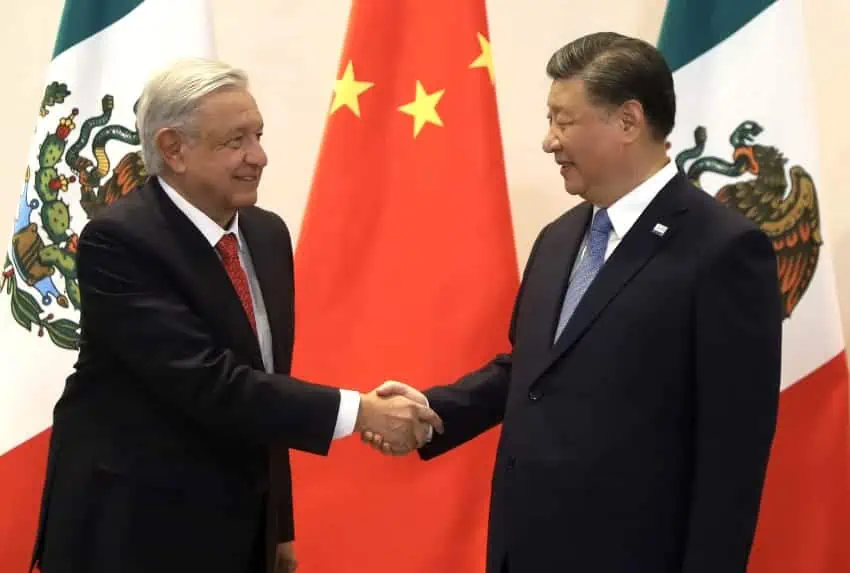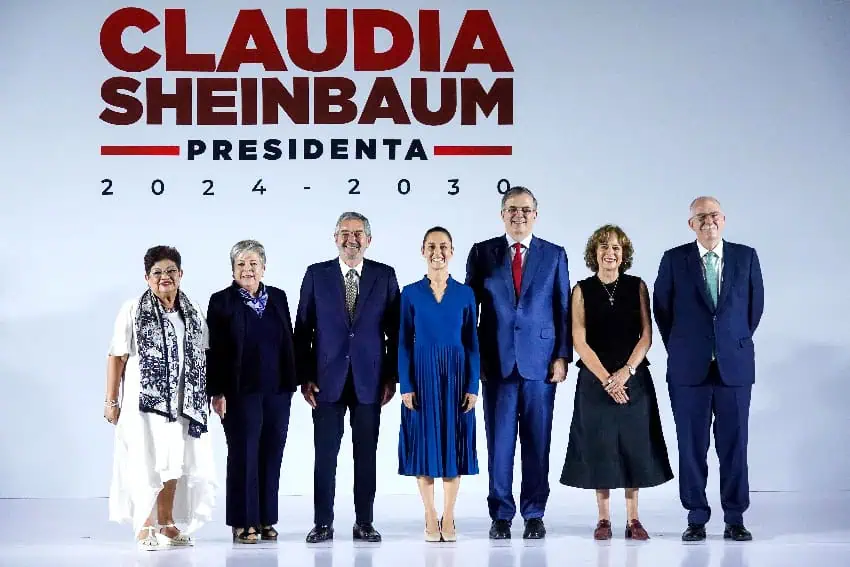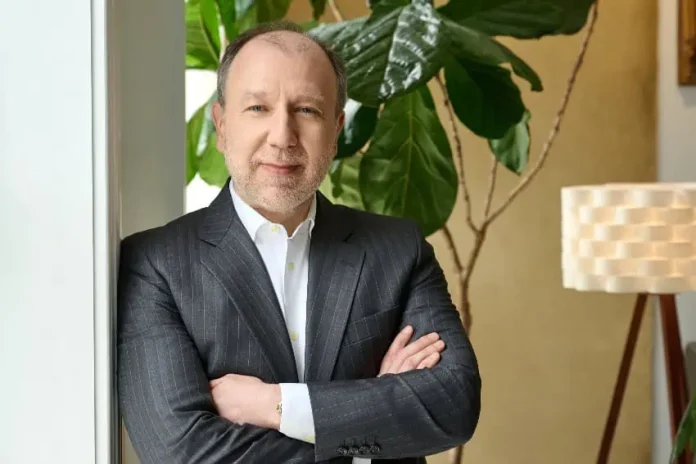The most pressing and important task for incoming economy minister Marcelo Ebrard is to impose higher tariffs on Chinese imports to protect Mexican industry, according to Mexico’s longest-serving ambassador to China.
Jorge Guajardo spoke to Mexico News Daily a day after President-elect Claudia Sheinbaum announced her first cabinet picks, including former foreign affairs minister Ebrard as economy minister.
For the second time in the last month, we put five questions to the ex-ambassador and former consul general in Austin, Texas, this time focusing on the influx of Chinese products to Mexico and the related challenges the Sheinbaum administration will face.
Mexico recently announced new tariffs that will impact more than 500 Chinese products. Does the federal government need to do more to protect Mexican industry?
Guajardo told MND that China has overcapacity in “every single industrial sector” and is consequently trying to offload goods all over the world.
While he expressed support for current economy minister Raquel Buenrostro’s decision to impose 5-50% tariffs on 544 products across categories including steel, aluminum, textiles, plastics, chemicals and transport material, the partner at global advisory firm DGA Group said that Ebrard needs to do more to “help Mexican industry withstand this tsunami of Chinese imports” — and quickly.
The issue needs to be addressed “immediately,” Guajardo said, asserting that “if you let it linger for a year,” Chinese imports could “threaten the viability” of a range of Mexican industries.

He said he’s not sure where Ebrard stands on the issue.
“Will he come in [to his new position] realizing that the most immediate job of the minister of the economy is to protect Mexican industry from Chinese imports? Or will he come in thinking he can leverage China in Mexico’s USMCA review process?” Guajardo said, referring to the North American free trade pact review that will take place in 2026.
“If he thinks we can leverage China, I think it would be a monumental mistake that would have a detrimental effect on Mexican industry,” he said.
“Ideally,” Guajardo said, Mexico, the United States and Canada would all “mirror each other’s tariffs.”
Where applicable, Mexico should raise its tariffs on Chinese imports to match those of the United States, he said, citing a 100% duty on petrochemicals in the U.S. as one example Mexico should follow.
Most of Mexico’s current tariffs on Chinese goods are in the 25%-35% range, but China has the capacity to absorb them by devaluing its currency and/or reducing production costs, among other measures, Guajardo said.
He stressed that Mexico should not be motivated to raise tariffs to appease the U.S., but must simply act “in its own interests” and protect local industry. That said, Mexico would “ideally” partner with the United States to “stop this import of Chinese overcapacity,” he said.

Guajardo expressed concern that Ebrard, because he is coming into his new position after almost five years as foreign minister, may still be thinking of “pleasing or forming alliances” with China when “there is no way to form an alliance with China when it comes to commerce.”
“You have to just stop it. There is no win-win, you have to act unilaterally, forcefully and assume they’re going to be displeased,” he said.
“There is no point in trying to please someone who is coming after your industry. … There’s nothing for us to gain in this scenario,” Guajardo said.
Beyond tariffs, what else could the federal government do to protect Mexican industry from Chinese imports?
Guajardo told MND that the incoming government also needs to be “more creative with regulations” to shut out exports in certain sectors. He said that is another task for Ebrard once he is sworn in as economy minister.
Offering an example of the kind of regulations Mexico could use, Guajardo cited the European Union’s Carbon Border Adjustment Mechanism, which, starting in 2026, will impose tariffs on carbon intensive imports such as steel and cement.
He also referred to the United States’ Uyghur Forced Labor Prevention Act, which aims to stop the importation of goods made wholly or in part with forced labor in Xinjiang, in particular, but also across China as a whole.
Looking ahead to the USMCA review in 2026, wouldn’t Mexico be in a stronger negotiating position if it refrained from further clamping down on Chinese imports?
Guajardo ruled out any possibility that Mexico could use its trade relationship with China as a bargaining chip at the upcoming USMCA review.
Any concessions Mexico makes to China on trade would in fact “weaken” its hand rather than strengthen it, he asserted.
“The review is just a review, it should be a non-event unless you come loaded with Chinese [baggage],” Guajardo said.
“… If you come in loaded with China, then it becomes a political event and that weakens your hand,” he said.
If Ebrard “tries to hedge or send a signal to the U.S. that he’s also winking at China, … I think he’ll be inviting misunderstanding on the U.S. side – our main trade partner – and potential abuse on the Chinese side,” Guajardo said.
“And the biggest loser will be Mexican industry,” he added.
United States Trade Representative Katherine Tai recently indicated that the U.S. could impose tariffs or other protectionist measures on goods made in Mexico by Chinese companies. Do you think that will happen?
“Technically USMCA is agnostic on country of origin for investment so if products meet rules of origin that should be enough [to stave off tariffs],” Guajardo said.
However, the United States could impose measures that will stop the importation of certain products made in Mexico by Chinese companies, he said.
For example, Guajardo said that the United States could prohibit the importation of Chinese electric vehicles made in Mexico because so-called “smart cars” currently made in China are considered a national security threat by the U.S. due to their capacity to collect personal data.

“If they build them in Mexico they will still be considered a threat,” he said.
“I’m not sure the same would apply to furniture, for instance,” Guajardo said.
“There are cases of Chinese companies investing in Mexico to build furniture. I think that’s pretty straight forward, everybody benefits. We get the jobs, we get the local content, we get the good prices, I think everybody wins,” Guajardo said, indicating that he sees U.S. protectionism in such areas as unlikely.
Can you comment more broadly on Sheinbaum’s first cabinet picks? Are they business-friendly appointments?
Guajardo stressed that respect for the rule of law is crucial for investment, and even more important than who is in Sheinbaum’s cabinet. That’s why there is so much concern over the proposed judicial reform, he said.
Turning to the accomplishments and attributes of the incoming ministers, Guajardo noted that Ebrard, as foreign minister, liaised with the private sector, including foreign companies, on re-openings during the COVID pandemic.
“I think he gained the trust of the private sector” through his management of that issue, he said.

Guajardo described incoming foreign affairs minister Juan Ramón de la Fuente, an ex-health minister and Mexico’s former permanent representative to the UN, as a “seasoned operator” who is “well-respected by most everyone” and will “bring weight to the Foreign Ministry.”
Meanwhile, the appointment of Alicia Bárcena, Mexico’s current foreign minister, as environment minister is “very positive,” he said.
The environment “was a sector that was all but ignored by this administration,” Guajardo said.
“… We lost a lot of time getting up to speed on our clean energy commitments,” he said, adding that Bárcena, a former ambassador and UN official, is someone who understands the challenges posed by climate change, and knows the importance of keeping one’s promises.
By Mexico News Daily chief staff writer Peter Davies (peter.davies@mexiconewsdaily.com)
